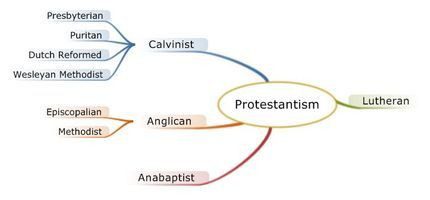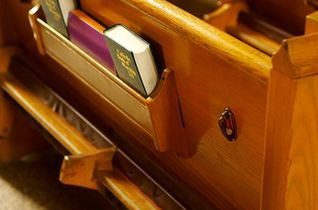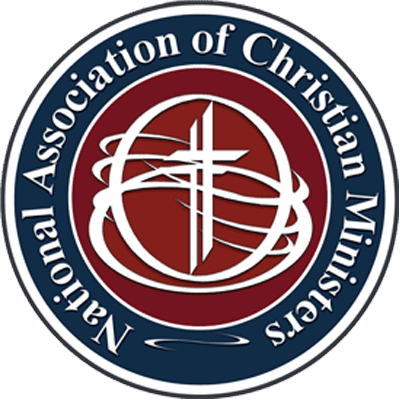
Priesthood of All Believers: Explained and Supported in Scripture
Image already added

This is evidenced by the words of the Mayflower compact, which opens stating:
“Having undertaken, for the Glory of God and advancement of the Christian Faith and Honor of our King and Country, a Voyage to plant the First Colony in the Northern Parts of Virginia… in the year of the reign of our Sovereign Lord King James, of England, France and Ireland” [1].Image already added
The Encyclopedia of American Studies states:
In a letter to Thomas Jefferson, John Adams said:
Image already added
The Influence of Martin Luther on the Priesthood of All Believers
Yet, much of this history, even the very existence of the U.S. can be linked to the philosophy of Martin Luther who is often credited for turning the church’s attention back to the biblical teaching of the priesthood of all believers. He openly expressed his thoughts that the pope and bishops anoint, consecrate, and dress in manners different from common people, but argued that such is no indicator of spirituality or even genuine Christianity. His premise was that all baptized believers hold the rites of priests by the authority of 1 Peter 2:9 [4]. It is with the zeal of this message that Luther sparked the reformation and the birth of Protestantism.
In another publication Luther argues that it is hypocritical to think that the laity should be separated from the clergy when we are forced to accept that all are equal in Christ. Further, he points out that the clergy has no authority over the laity except that which the laity gives them by their free appointment [5].
Luther held three central affirmations that gave fuel to the reformation:
1) That the role of priests are nothing more than “functionaries” because all believers are priests. The functionaries are those who merely serve publicly as priests. 2) That all believers have the right to interpret scripture, and need not be dependent upon the pope. 3) That all believers have the authority to call other believers unto the council of the Word of God.


The Heresy of Nicolaitanism

Jesus said to the church at Ephesus: Yet this you have: you hate the works of the Nicolaitans, which I also hate. (Rev 2:6 ESV).
Jesus said this to the church at Pergamum: So also you have some who hold the teaching of the Nicolaitans. (Rev 2:15 ESV).
This must be important for Christ to mention it twice in the same chapter and to say that he hates it!
Dr. Tim Lahaye writes in his book Revelation illustrated and made plain:
The word “Nicolaitans” comes from two Greek words: niko, meaning “to conquer, or overthrow,” and laos , meaning “the people or the laity.”…. They tried to establish an ecclesiastical order. This latter heresy is known as “Nicolaitanism.” This is an unscriptural idea that causes the church to become enslaved by one man or small group of men whose spiritual life can determine the spiritual success of the church. (p. 26.)
Image already added
He went on to say:
Nicolaitanism is the doctrine of a strong ecclesiastical hierarchy ruling over the laity; this has never been conductive to a strong spiritual condition in the church. Laymen were given no voice in the church affairs, but were required to obey blindly the decrees of the clergy. The clergy then gradually seemed to gravitate to an impractical ivory tower type of existence that separated them more and more from the people. Whenever a minister loses contact with the people, he ceases to be an effective tool in the hand of God. (p. 41.)
Image already added
Dr. Jack Van Impe writes in his book Revelation Revealed:
Not only were the people of the first church of Pergamos worldly, sinful and idolatrous, but they also shared in the wicked practice of the Nicolaitanism as did the church at Ephesus. This, again, is ecclesiastical Hitlerism. It is when the minister says, “I am the head, and you have no choice in the matter,” allowing laymen no voice in the affairs of the church. (p. 35-36.)
Image already added
Jesus called them to him and said, “You know that the rulers of the Gentiles lord it over them, and their great ones exercise authority over them. It shall not be so among you. But whoever would be great among you must be your servant, and whoever would be first among you must be your slave (Mat 20:25-27 ESV).
Image already added

The Following Scripture Supports the Priesthood of All Believers:
- 1) the office of a priest;
- 2) the order or body of priests.
1) a priest, one who offers sacrifices and in general is busied with sacred rites
- 1a) referring to priests of Gentiles or the Jews
Scofield reminds us that the greatest of rights afforded to priests is to have access to God. It was the high priest alone that entered the holy place on behalf of the people. This access was left as a mystery to the people. The earthly body of flesh and blood held by Christ is symbolic of the veil that separated the holy of holies from the people. But when he was crucified, his flesh was torn and the veil over the holy place was torn apart. This was a direct signal from God that through Christ, all believers have priestly access to Him (Heb 9:7, 10:19-22) [6].
Image already added
The Believer's Priestly Responsibilities

Ministers Offer the Sacrifice of Themselves
I appeal to you therefore, brothers, by the mercies of God, to present your bodies as
Even if I am to be poured out as a drink offering upon the sacrificial offering of your faith, I am glad and rejoice with you all.
For here we have no lasting city, but we seek the city that is to come. Through him then let us
Image already added
Ministers Share the Gospel, Train Others, and Perform the Rite of Baptism
Mat 28:18-20 ESV
Jesus came and said to them, “All authority in heaven and on earth has been given to me. Go therefore
and make disciples of all nations, baptizing them in the name of the Father and of the Son and of the Holy Spirit,
teaching them to observe all that I have commanded you. And behold, I am with you always, to the end of the age.”
Image already added
Ministers Control Their Speech
Jas 1:26 ESV
If anyone thinks he is religious and does not bridle his tongue
but deceives his heart, this person’s religion is worthless.
Image already added
Ministers Visit and Support the Weak
Jas 1:27 ESV
Religion that is pure and undefiled before God, the Father, is this: to visit
orphans and widows in their affliction, and to keep oneself unstained from the world.
Heb 13:16 ESV
Do not neglect to do good and to share what you have,
for such sacrifices are pleasing to God.
Gal 6:9-10 ESV
Let us not grow weary of doing good, for in due season we will reap, if we do not give up.
As we have opportunity, let us do good to everyone, and
especially to those who are of the household of faith.
Image already added
Ministers Keep Themselves From Sin
Jas 1:27 ESV
Religion that is pure and undefiled before God, the Father, is this: to visit orphans
and widows in their affliction, and to keep oneself unstained from the world.
Image already added
Ministers Pray and Intercede for Others
1Ti 2:1-4 ESV
First of all, then, I urge that supplications, prayers, intercessions, and thanksgivings be made for all people,
for kings and all who are in high positions, that we may lead a peaceful and quiet life, godly and dignified
in every way. This is good, and it is pleasing in the sight of God our Savior, who desires all people
to be saved and to come to the knowledge of the truth.
Col 4:12 ESV
Epaphras, who is one of you, a servant of Christ Jesus, greets you, always struggling
on your behalf in his prayers, that you may stand mature and fully assured in all the will of God.
Image already added
Conclusion
The National Association of Christian Ministers holds the doctrine of the priesthood of believers. We believe this position is taught in scripture, perpetuated by church history, and affirmed by the origination of the American people. Therefore, on the authority of Scripture, and the obligation of the Great Commission (Mat 28:18-20), as a body of believers we ordain ministers in obedience to God.
Further Considerations
Statement from the Southern Baptist Convention [8]:
Image already added
References
[1] 1620, William Bradford: History of Plymouth Plantation, c. 1650.
[2] Pilgrims. (2010). In Encyclopedia of American Studies.
[3] June 28, 1813, The Adams-Jefferson Letters,ed. Lester J. Cappon (Chapel Hill, NC: University of North Carolina Press, 1959), vol 2, pp. 339-40.
[4] Luther, 1520. To the Christian Nobility of the German Nation.
[5] Luther, 1520. On the Babylonian Captivity of the Church.
[6] 1917. The Scofield reference Bible.
[7] Daniel Akin, p. 37. Perspectives on Church Government.
[8] Southern Baptist Convention http://www.sbc.net/aboutus/pspriesthood.asp
Image already added

